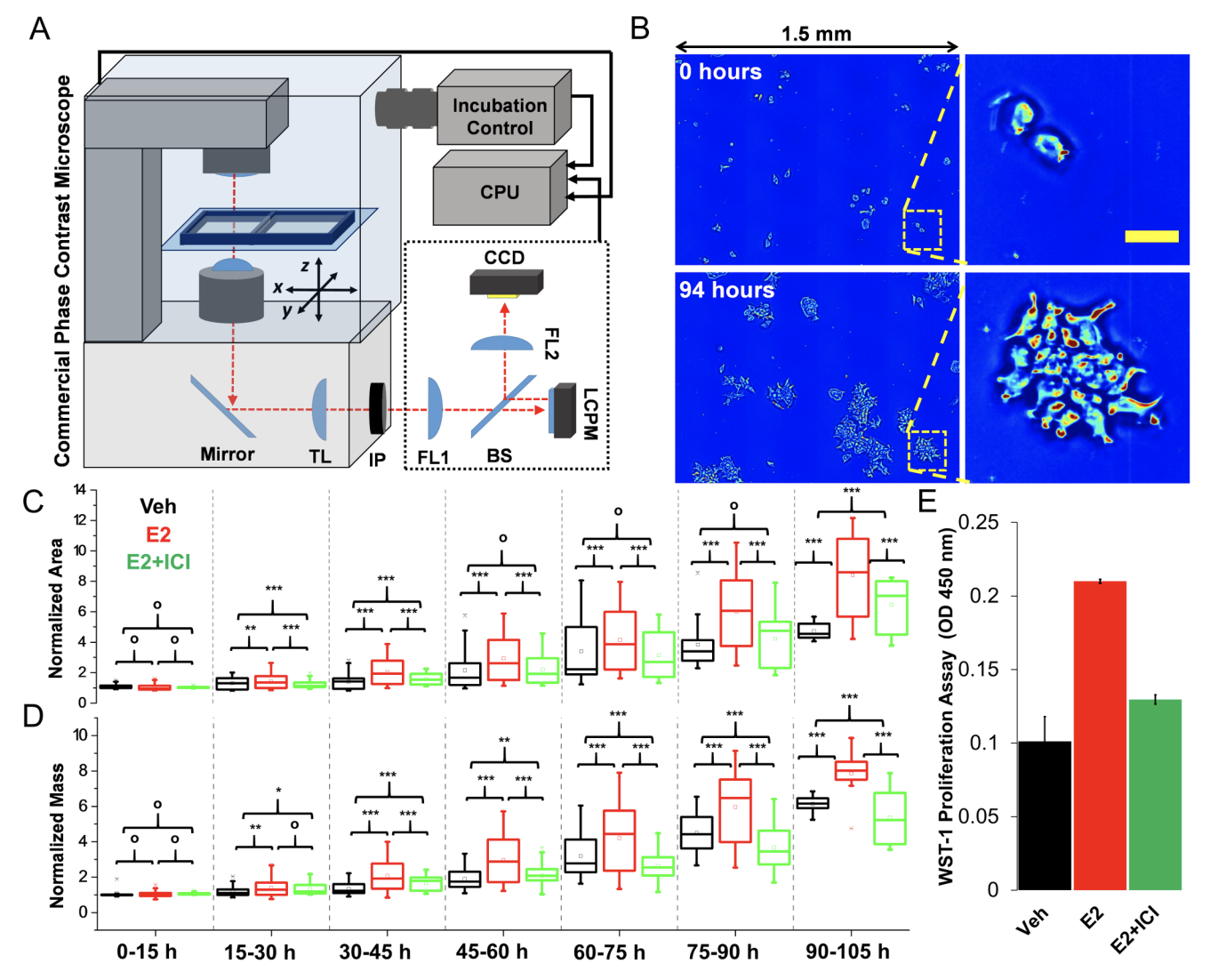HIGHLY SENSITIVE QUANTITATIVE IMAGING FOR MONITORING SINGLE CANCER CELL GROWTH KINETICS AND DRUG RESPONSE
Mustafa Mir1¤, Anna Bergamaschi2 , Benita S. Katzenellenbogen2 , Gabriel Popescu1
PLOS ONE, Volume 9, Issue 2, e89000 2014
![]()

The detection and treatment of cancer has advanced significantly in the past several decades, with important improvements in our understanding of the fundamental molecular and genetic basis of the disease. Despite these advancements, drug-screening methodologies have remained essentially unchanged since the introduction of the in vitro human cell line screen in 1990. Although the existing methods provide information on the overall effects of compounds on cell viability, they are restricted by bulk measurements, large sample sizes, and lack capability to measure proliferation kinetics at the individual cell level. To truly understand the nature of cancer cell proliferation and to develop personalized adjuvant therapies, there is a need for new methodologies that provide quantitative information to monitor the effect of drugs on cell growth as well as morphological and phenotypic changes at the single cell level. Here we show that a quantitative phase imaging modality known as spatial light interference microscopy (SLIM) addresses these needs and provides additional advantages over existing proliferation assays. We demonstrate these capabilities through measurements on the effects of the hormone estradiol and the antiestrogen ICI182,780 (Faslodex) on the growth of MCF-7 breast cancer cells. Along with providing information on changes in the overall growth, SLIM provides additional biologically relevant information. For example, we find that exposure to estradiol results in rapidly growing cells with lower dry mass than the control population. Subsequently blocking the estrogen receptor with ICI results in slower growing cells, with lower dry masses than the control. This ability to measure changes in growth kinetics in response to environmental conditions provides new insight on growth regulation mechanisms. Our results establish the capabilities of SLIM as an advanced drug screening technology that provides information on changes in proliferation kinetics at the cellular level with greater sensitivity than any existing method.
